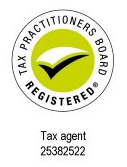Estate planning is an important process that everyone should undertake to ensure that their assets are distributed according to their wishes after they pass away. However, it’s also important to consider the tax implications of your estate plan. In this blog post, we’ll explore some of the ways that you can reduce taxes through estate planning in Australia.
Understand the Tax Implications of Your Estate Plan
Before you can reduce taxes through estate planning, it’s important to understand the tax implications of your plan. In Australia, there are several taxes that can apply to your estate:
Capital Gains Tax (CGT)
CGT applies to the sale of assets, including those that are sold as part of an estate. If you sell assets that have increased in value since they were acquired, you may be liable to pay CGT.
Income Tax
Income tax may apply to income earned by your estate after you pass away, such as rental income from investment properties.
Estate Tax
Australia does not have an estate tax, but there may be other taxes that apply to your estate, such as stamp duty.
Use Tax Structures to Reduce Taxes
There are several tax structures that you can use to reduce taxes as part of your estate plan. Here are some of the most common:
Trusts
Trusts can be an effective way to reduce taxes as part of your estate plan. For example, a discretionary trust can provide flexibility in how income is distributed to beneficiaries, which can help to minimise tax liabilities and also keep assets out of your estate and protected from unwanted family provision claims.
Superannuation
Superannuation can also be a useful tax structure to consider as part of your estate plan. For example, if you have a self-managed super fund (SMSF), you can use it to transfer assets tax-effectively to your beneficiaries.
Testamentary Trusts
Testamentary trusts are trusts that are set up under a will. They can provide tax benefits by allowing income to be distributed to beneficiaries in a tax-effective way.
Use Estate Planning Strategies to Reduce Taxes
There are also several estate planning strategies that you can use to reduce taxes as part of your plan. Here are some of the most common:
Gifting
Gifting is a strategy where you transfer assets to your beneficiaries during your lifetime. This can help to reduce the value of your estate and therefore reduce taxes. However, care must be taken as gifting will have an effect on pension entitlements.
Life Insurance
Life insurance can be used as part of your estate plan to provide a tax-free lump sum payment to your beneficiaries after you pass away.
Charitable Donations
Charitable donations can be a tax-effective way to reduce the value of your estate and therefore reduce taxes. For example, if you donate to a registered charity, you may be eligible for a tax deduction.
Wills & Power of Attorney Documents
Having a will is an essential legal document in Australia that outlines your final wishes for your assets and property after you pass away. A will can provide peace of mind and ensure that your assets are distributed according to your wishes, rather than being subject to intestacy laws. Without a will, your assets may be distributed according to a predetermined formula that may not align with your wishes. Additionally, having a will can help to prevent disputes among family members and provide a clear plan for the distribution of your assets. It’s important to update your will regularly to ensure that it reflects any changes in your circumstances, such as new assets, marriages, or births. Overall, having a will in place can provide clarity and certainty for your loved ones and ensure that your final wishes are honoured.
In addition, having a power of attorney is an important legal document that can provide peace of mind and protection in case of unexpected events. A power of attorney allows you to appoint someone you trust to make decisions on your behalf if you become unable to do so, either due to illness, injury, or other circumstances. This document can be especially important for older adults, those with chronic illnesses, or anyone who wants to ensure that their wishes are carried out if they become incapacitated. Without a power of attorney, important decisions such as financial or medical decisions may be made by someone you wouldn’t have chosen or may require costly and time-consuming legal intervention. Having a power of attorney in place can provide clarity and security in uncertain times.
Seek Professional Advice
Estate planning can be a complex process, particularly when it comes to tax planning. It’s important to seek professional advice to ensure that you’re using the most effective tax structures and estate planning strategies for your individual circumstances.
Conclusion
Reducing taxes through estate planning is an important consideration for anyone who wants to ensure that their assets are distributed according to their wishes after they pass away. By understanding the tax implications of your estate plan and using the right tax structures and estate planning strategies, you can minimise tax liabilities and maximise the value of your estate for your beneficiaries. If you’re considering estate planning in Australia, it’s important to seek professional advice to ensure that you’re making the most effective decisions for your individual circumstances.









